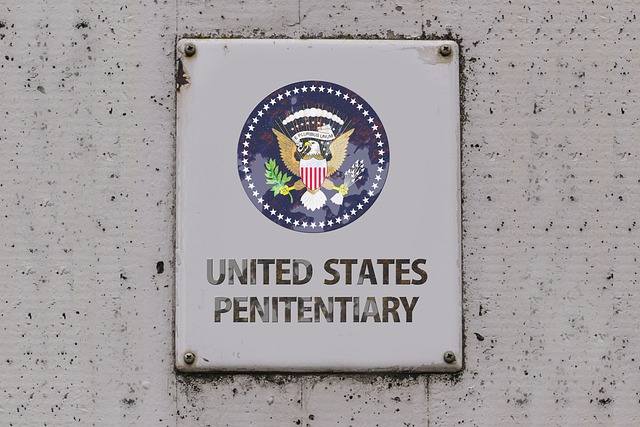Understanding your legal rights under global immigration and DUI (driving under influence) perspectives is essential for international travelers, especially during traffic stops. Varied laws worldwide require drivers to be aware of local regulations, cooperate with field sobriety tests, and know their right to remain silent and consult an attorney. Carrying essential documents like passports and vehicle registrations can streamline interactions and protect against potential abuses of power. The Vienna Convention on Consular Relations governs police interactions with foreign nationals, providing protection for legal rights. Global Immigration and DUI Perspectives highlight significant contrasts in traffic stop procedures, from the U.S.'s emphasis on individual liberties to strict zero-tolerance laws in countries like Japan.
“Traffic stops can be stressful, especially when navigating different legal landscapes abroad. Understanding your rights is crucial, whether you’re a local driver or an international traveler. This article guides you through the intricacies of traffic stops across borders, focusing on global immigration laws and DUI perspectives. Learn how to protect your rights during police interactions and gain insights from real-world case studies. By understanding these legal aspects, you’ll be better equipped when facing traffic stops in diverse countries.”
- Understanding Traffic Stops: Your Legal Rights Across Borders
- Global Immigration Laws: What Every Driver Needs to Know
- DUI (Driving Under the Influence) and Its International Implications
- Protecting Your Rights During Police Interactions Abroad
- Case Studies: Navigating Traffic Stops in Different Countries
Understanding Traffic Stops: Your Legal Rights Across Borders

Navigating traffic stops can be stressful, especially when crossing international borders. Understanding your legal rights is crucial, particularly when considering Global Immigration and DUI perspectives. In many countries, police must have reasonable suspicion to stop a vehicle, and they cannot profile drivers based on race or ethnicity. However, laws vary worldwide, and what applies in one country might not hold true in another.
When stopped, you have the right to remain silent; this is vital, especially if you’re facing DUI charges. You can request an attorney, and many countries ensure this right. Always carry relevant documentation, like your passport and vehicle registration, to facilitate the process. Knowing your rights enables you to interact with authorities confidently and protect yourself from potential misunderstandings or abuses of power.
Global Immigration Laws: What Every Driver Needs to Know

When it comes to traffic stops, especially for international travelers, understanding global immigration laws is crucial. Many countries have specific regulations regarding driving under the influence (DUI), often with stricter penalties than in your home nation. For instance, some nations employ a zero-tolerance policy, allowing law enforcement to arrest and charge drivers with DUI even below the legal blood alcohol limit in their jurisdiction.
Drivers should be aware that local authorities may require them to take field sobriety tests or provide a breath or blood sample. Refusal to comply could lead to adverse consequences, including license suspension or revocation. It’s essential to cooperate but also to know your rights and seek legal counsel if needed, especially when navigating the complex landscape of global immigration and DUI perspectives.
DUI (Driving Under the Influence) and Its International Implications

In many countries, driving under the influence (DUI) is a serious criminal offense with severe penalties. However, when it comes to global immigration and DUI perspectives, the picture becomes more complex. The international implications of a DUI conviction can significantly impact an individual’s ability to travel and reside abroad. Each nation has its own set of laws and regulations regarding alcohol consumption and driving, and these variations present challenges for those with a history of DUI.
For instance, while some countries may have more lenient penalties or different legal standards, others strictly enforce strict DUI laws, often refusing entry or residency to individuals convicted of this offense. This discrepancy underscores the importance of understanding local laws when traveling internationally, especially in light of global immigration policies. Knowing your rights and being aware of potential consequences can help mitigate the impact of a DUI conviction on future international endeavors.
Protecting Your Rights During Police Interactions Abroad

When interacting with law enforcement abroad, understanding your rights is paramount, especially considering global immigration and DUI perspectives. Many countries have agreements and treaties that govern how police should interact with foreign nationals, ensuring certain minimum standards of conduct and protection for your legal rights. For instance, the Vienna Convention on Consular Relations provides guidelines for diplomatic interactions, including when a person from one country is detained or arrested in another.
If stopped during travel, remain calm and polite, but assertively communicate that you wish to exercise your right to remain silent and consult with a representative from your home country’s embassy or consulate. These diplomatic missions can offer legal advice, help translate, and ensure fair treatment under local laws, especially when dealing with issues like DUI (Driving Under the Influence). Understanding these protocols can protect you during potentially stressful interactions, ensuring your rights are respected while navigating unfamiliar legal territories.
Case Studies: Navigating Traffic Stops in Different Countries

In many countries, traffic stops vary significantly in terms of procedures and rights afforded to drivers. For instance, in the United States, during a traffic stop, law enforcement officers must inform drivers of the reason for the stop and can only extend the encounter if they observe additional violations or have reasonable suspicion of other crimes. This is part of the country’s strong emphasis on individual liberties under the Fourth Amendment. In contrast, some countries like those in Europe or Asia may have more stringent rules where police can conduct longer searches during a traffic stop based on lesser criteria.
Considering Global Immigration and DUI Perspectives, these differences become even more pronounced. Countries with high immigration rates often have procedures tailored to manage diverse populations, including language barriers and varying legal systems. For example, in Canada, officers are required to treat all individuals with respect and dignity, while also being mindful of cultural sensitivities. Conversely, during a traffic stop in a country with strict DUI laws like Japan, drivers may face extensive questioning and field sobriety tests, reflecting the nation’s zero-tolerance approach to drunk driving. These case studies highlight the diverse global perspectives on traffic stops and the rights of drivers worldwide.
Understanding your rights during traffic stops is essential, especially when traveling internationally. With varying global immigration laws and differing perspectives on DUI, being informed empowers drivers to navigate these situations abroad confidently and legally. By learning from case studies and staying aware of local regulations, you can protect yourself during police interactions and ensure a smoother journey across borders.






